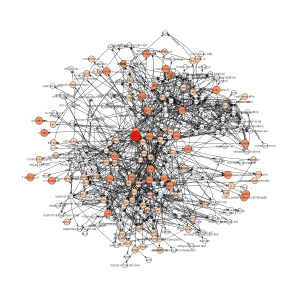SEO saw huge changes with the Penguin and Hummingbird updates of 2013 and we can expect to see loads more of the same in 2014. However, it’s a pretty big subject – so what do we think will be the main areas of change in the coming year?
Diverse SERP’s
We’ve seen all sorts of changes to the SERPs in 2014 – some which were trialed and some of which were permanent. Organic listings got pushed down the page in a number of areas and we saw the Knowledge Graph and shopping result info take up its space. Schema Mark-up is going to be increasingly important in the search engine results page (SERPs).
Schema
Schema and Data Mark-up are going to be incredibly large in 2014 and Google’s been pointing this out for a while now. In fact, last year they even introduced a new Structured Data Mark-up Tool to help us out. So, expect to see a significant amount of more Schema mark-up for sites in 2014 and Google really pushing content that’s been ordered and organised in this way.
Authorship
Another one of the big pushes in the world of SEO will be in the Authorship area. Expect to see Big G really begin to implement this in 2014. In fact, we wouldn’t be surprised to see digital agencies actually even take it into account when giving people jobs. So, get building those Google Circles and Twitter followings – they’re most certain to help in 2014.
Hummingbird
Hummingbird arrived at the end of the autumn and it’s going to have a large part to play in 2014. Semantic influenced content is set to be a big factor in 2014 and it’s going to come down to the production of long form articles that answers the long tail questions and queries users have. It’s going to be interesting to see how it’s going to affect the world of the SERPs and SEO.
Technical SEO

Expect to see an increased focus on the technical SEO area and more onuses on mobile optimisation and site speed. Mobile is such a large part of the search world now that sites that haven’t passed any attention to it before now will suffer in 2014. Crawl errors, broken links and technical issues are also going to cause big problems too in 2014 for sites.
Guest Blogging
Expect to see some changes to the world of guest blogging. Until now Google has allowed for some leeway here, however as Matt Cutts has stated already Google is seeing a lot of spun content and duplicate content, among other abuses in the area. At http://fusewave.co.uk/ we obviously don’t expect guest blogging to disappear, but do expect it to evolve and the cream of the crop to rise to the top and the poorer stuff to get a bit of a battering after an algorithm update in the first half of the year.
Fake Reviews
 Expect fake reviews to begin to disappear and expect Google to really begin to heavily punish companies it expects are creating false reviews of their products.
Expect fake reviews to begin to disappear and expect Google to really begin to heavily punish companies it expects are creating false reviews of their products.
Social Signals
Expect these to become increasingly important and though there is no proof they do so at the moment, many people expect to see it as an occurring development in the coming year and that we’ll see Google take them into account as a ranking factor in 2014.
These are just some of the SEO changes that we can expect to see in 2014 and though we may not be right about all of them, expect some to come to pass.
By Cormac Reynolds a social media writer with a passionate interest in the subject. When he’s not writing about it, he is learning about social media.





 Henry Hernandez is a veteran, father and CEO of an
Henry Hernandez is a veteran, father and CEO of an